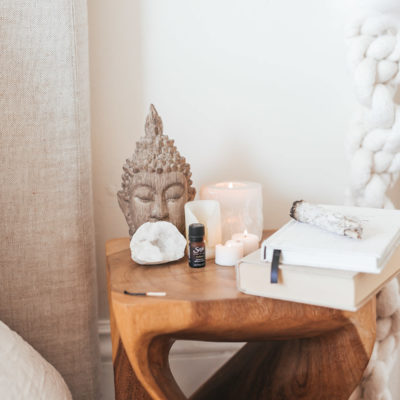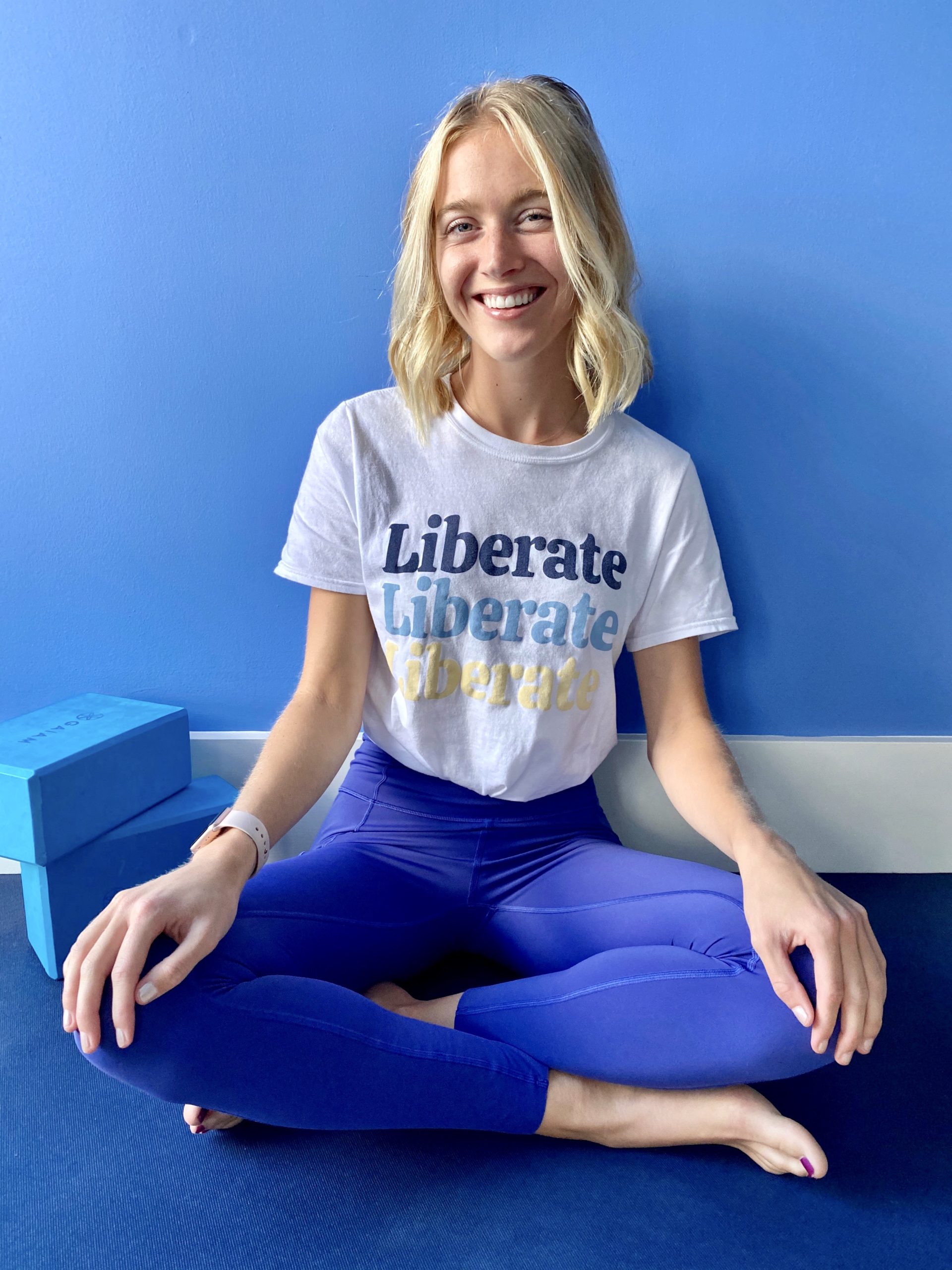How to Actually Quit a Job in Your 30s
posted on September 20, 2018 | by Joana Veiga Ferreira

At the end of 2017, I quit my well-paying stable job to start my own marketing consultancy. I wanted my independence back, my time and my freedom; to be able to make my own decisions about when I work, how I work, who I work with and most importantly, who I don’t work with. I had big aspirations and big ideas, but no blueprint about how exactly it would all work out – especially as a 30 something with real responsibilities. It’s a learning curve, so if you’re thinking about doing the same, read on.
Get your finances in check
I’m pretty good with money, and don’t spend too much on frivolous things, so I’d managed to save up quite a lot in my previous job. If you’re starting out on your own, make sure you have enough money saved up to keep you going for a few months. The last thing you want it to take on crappy jobs just to make ends meet.
If you’re not good at saving then start with this: Write a list of all your fixed monthly costs (i.e. rent, electricity, car payments etc.) and then analyze them to see if there is anything you can remove or cut down on. For example, when I did this I realized I was spending a lot of money on things like cable TV and phone. I called up the company and negotiated a cheaper rate. I did the same with the electricity company. A lot of times, companies are able to offer you discounts, but you just need to ask first! After this, keep track of all your other spending, either on a spreadsheet or a notebook. Seeing all your spending in front of you can be the wake up call you need to cut back.
Do you really need that daily Starbucks or can you make great coffee at home? Do you need that new bag? Small things add up, and you can save a lot of money very quickly if you’re disciplined.
Make sure you know how much you need each month to get by and save enough for at least three months. If you’re not there yet, then maybe it’s not the right time to go at it alone. Everything takes a lot longer than you expect and you may not have steady income straight away, so it’s important to have enough in the bank to keep you afloat.
Take time to make the time
Taking time off after quitting was really important for me to get into the right headspace. Coming from a very stressful environment, I felt I needed time to reflect on what exactly I wanted to achieve, and I couldn’t do that while working – or while looking for a new gig. I had enough money saved up so I took a whole month off with no expectations. It was actually pretty hard taking time off, I felt like I was being unproductive, like I should be doing something. I felt lonely, sometimes bored, anxious and sometimes nervous about my future. But it’s like a come-down, you need to go through that to get to the other side and start with a positive attitude. By the time my month off was over, I was hyped up and full of energy!

Have a business plan
I’m a marketing consultant, so planning is in my nature. I always start with objectives, an overall strategy, a rough plan and some timings. I took a similar approach to my business, but also left a lot of room for flexibility. Starting this business is like a journey and one that changes as I travel through it. I didn’t want to have tunnel vision, but I also needed to make sure I wasn’t just winging it.
I started with the following:
– What kind of business will I set up?
– What are my values?
– What’s my mission?
– What do I stand for as a business?
– What kind of clients do I want to work with?
– How much should I charge? What’s the minimum rate I am prepared to work for?
– What are my core services?
I set up all the necessary paperwork and tax information, registered my business name, bought my domain and created a website for myself. I updated my social media, my LinkedIn profile and signed up to as many networks and directories as I could find. I created a portfolio online, and a PDF one to email to potential clients. I created a spreadsheet with all my existing contacts who I would reach out to and started a new one with contacts I’d like to make. I looked for local events that were free where I could network and printed my business cards.
This is time consuming. It took me about a month to put all of this together – a month where I wasn’t earning any money. But doing this saves you so much time and hassle in the long run it’s definitely worth it.
Reach out
Working for yourself means you have to get pretty good at selling yourself, even if you’re a bit shy. When you first start out it’s important to build your network, starting with your existing contacts. Let everyone know you are in business and ask for referrals and introductions. Send out personalized emails, put posts on social media, email local businesses, write blog articles for free on other people’s blogs who have a similar audience to yours, and speak to a load of people at networking events. It’s daunting at first, and you might feel a bit like a used car salesman, but don’t give up! I even got my first job after meeting someone at a conference and introducing myself, so don’t be afraid!
Create a community spirit
Shaky moments will happen – I went through my whole first working month without much… work. Going through those shaky moments is part of growing as a business. And when you work on your own it’s all too easy to get sucked into negative thinking. This is where having a strong community around you is hugely important.
Friends and family are great at picking you up, but they don’t always know what you’re going through unless they are going through it themselves. So, making sure to surround yourself with others in your situation is really important. I’d joined a lot of Facebook groups for freelancers, and I’d made some connections at local networking events. Being open and honest about your fears is not easy, and it’s something we shy away from as we don’t want to appear weak, but it is what we need to do to get past it and come out stronger.
Leave room to grow
It’s been six months since I started my business. Things aren’t perfect, but I’m pretty happy with how far it’s come. I take every experience as a learning curve, and I don’t pretend to have all the answers. I’m sure I have made plenty of mistakes and will continue to do so. But I’ve also done things my way, which is the reason I started this in the first place. I’ve had disappointments and frustrations, but also moments where I’ve felt really happy with the outcome. I had to adjust my plan a bit, maybe I was too ambitious at the start and didn’t factor in how long things actually take, but I’m positive that I can make this work.
If you’re thinking about making a big career change in your 30s, the best advice I can give you is to trust yourself and go for it. Prepare for the best- and worst-case scenarios, do your research and follow your instinct. If you don’t try, you will regret it, and for me that’s worse than failure.
 Why I’m Seeing a Therapist Even Though I’m in a Good Place
Why I’m Seeing a Therapist Even Though I’m in a Good Place Everything You Need to Know About Essential Oils
Everything You Need to Know About Essential Oils Welcome to Advice from a 30 Something!
Welcome to Advice from a 30 Something! 5 Smart Money Habits To (Finally) Nail This Decade
5 Smart Money Habits To (Finally) Nail This Decade The 5 Best Podcasts for 30 Somethings
The 5 Best Podcasts for 30 Somethings Our First Home: The Before Photos & Renovation Plan
Our First Home: The Before Photos & Renovation Plan An Indie Dinner Party Playlist
An Indie Dinner Party Playlist 3 Tips for Low Maintenance Hair Color
3 Tips for Low Maintenance Hair Color How to Take Better Care of Your Clothes
How to Take Better Care of Your Clothes 4 Quick Tips for Making An Outfit More Flattering
4 Quick Tips for Making An Outfit More Flattering Screw Timelines: Why We Bought a House Before Getting Engaged
Screw Timelines: Why We Bought a House Before Getting Engaged Why I Waited Until My 30s To Get Married
Why I Waited Until My 30s To Get Married 10 Things You Didn’t Want to Know About Birth (But Kinda Need To!)
10 Things You Didn’t Want to Know About Birth (But Kinda Need To!)






Pingback: 5 Helpful Things I've Learned Since Working from Home – Advice from a 30 Something
Shannon Says
Wow. I’m so glad I somehow landed on this blog today. I’ve been looking for some heartfelt blog that’s not there to sell me something for a while now. The advice and the experiences you share on your blog are so genuine. Thanks so much!
Lindsay Says
Good article, but I’m wondering if you have advice for those in a relationship, specifically regarding finances. It’s easy to cut down life’s pleasures if it’s only you. But how do you get a partner on board with cutting back? Or feel comfortable asking? I mean, they are earning just as much as they always have, but may get resentful if your not contributing as much, to the point their lifestyle has to change.